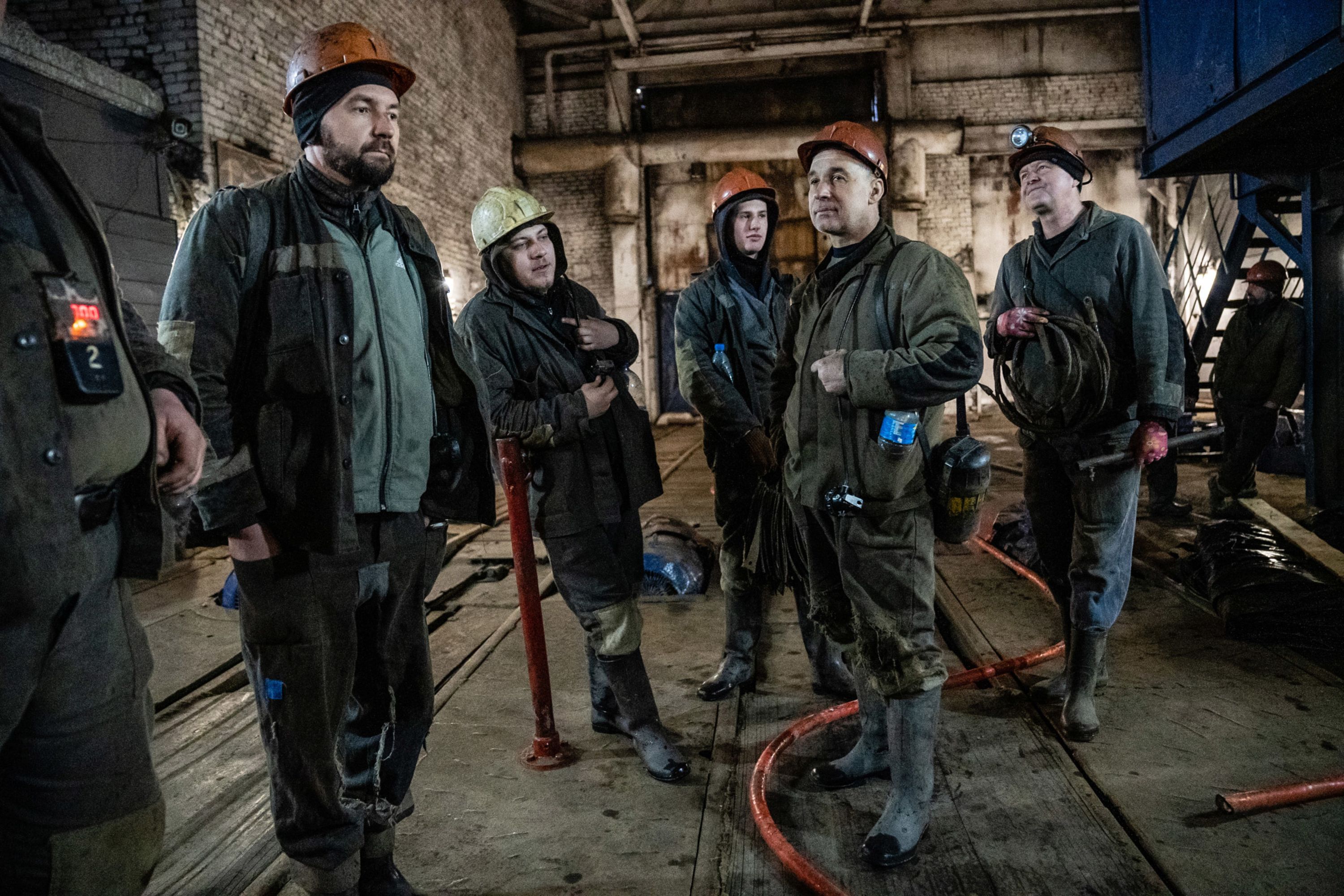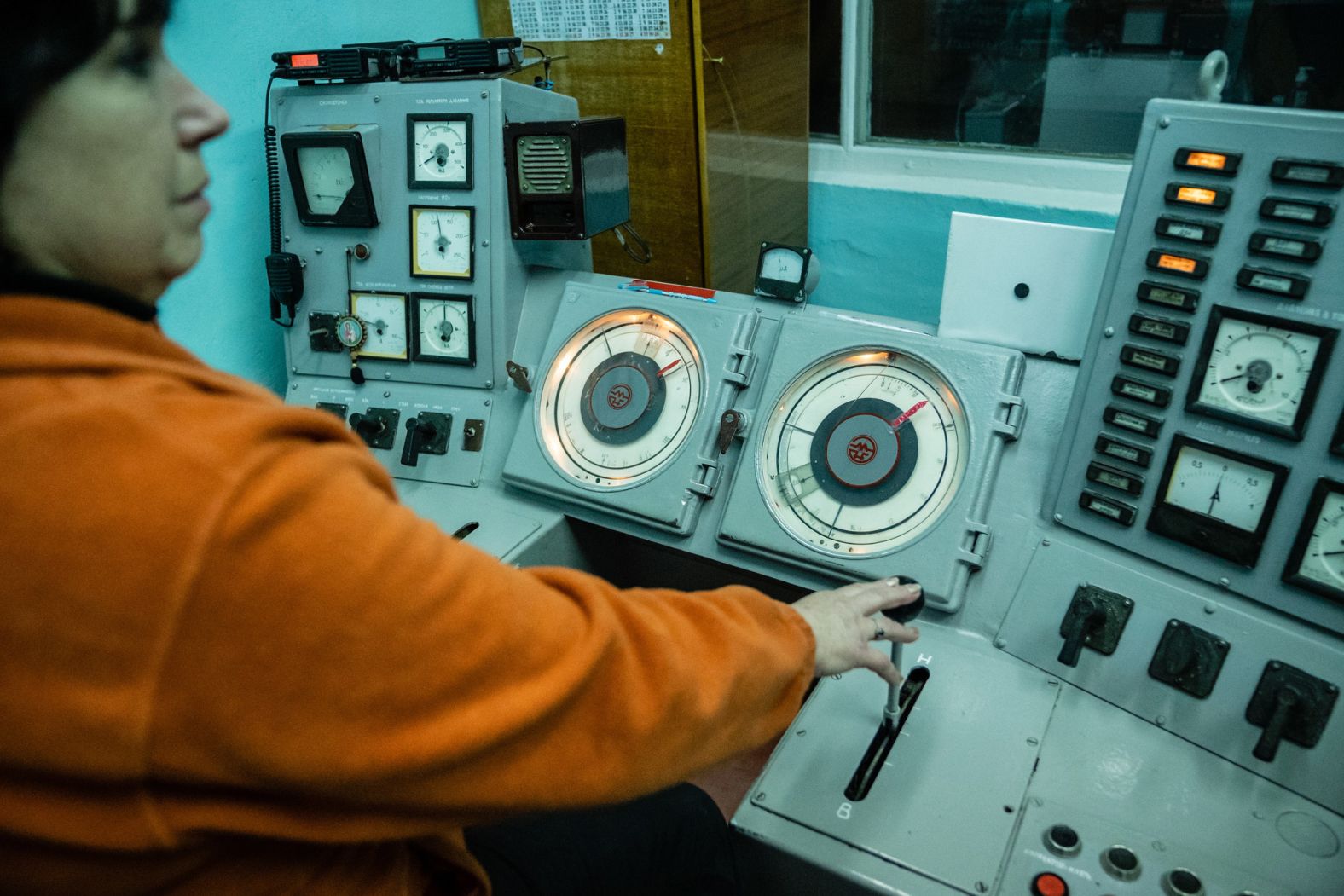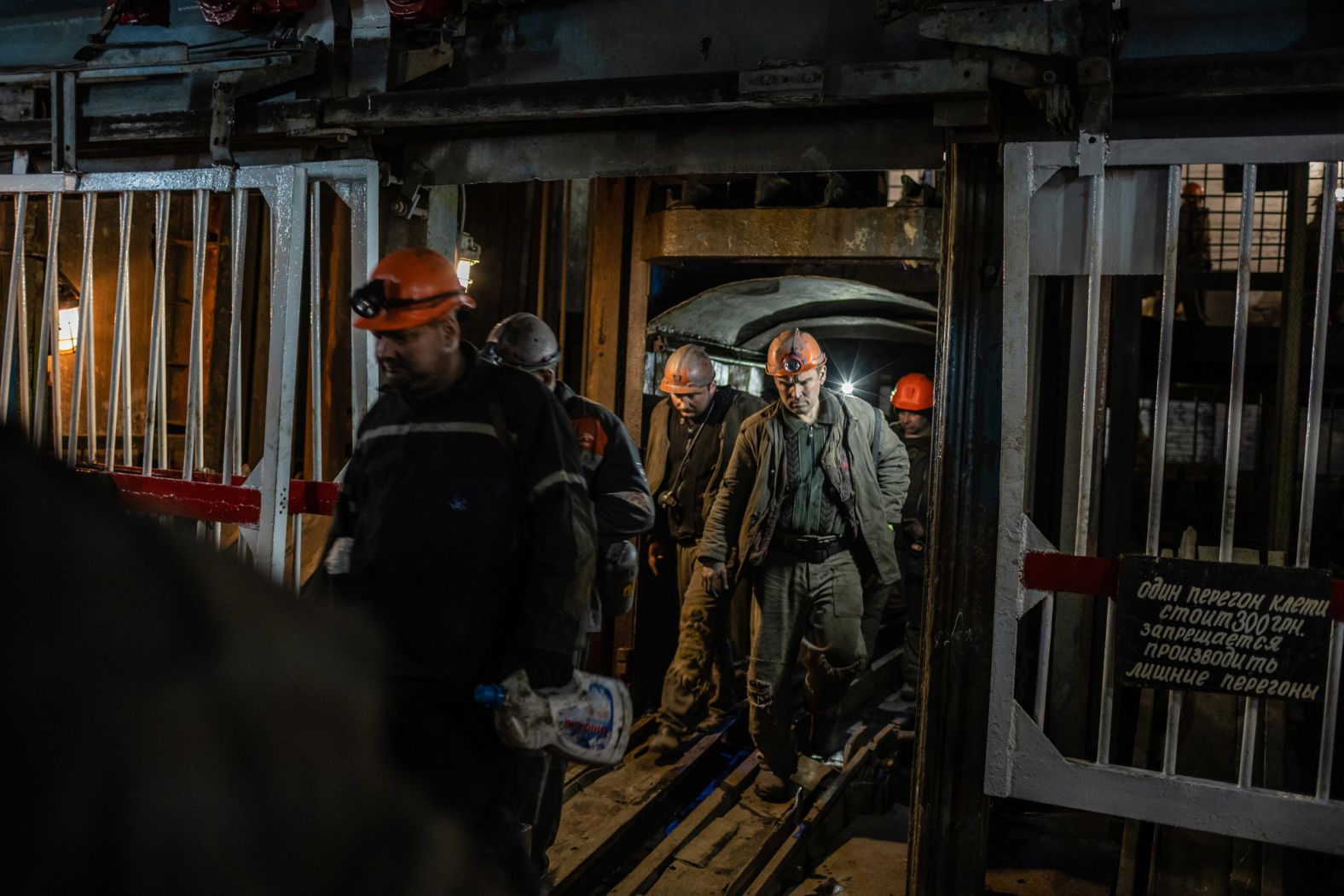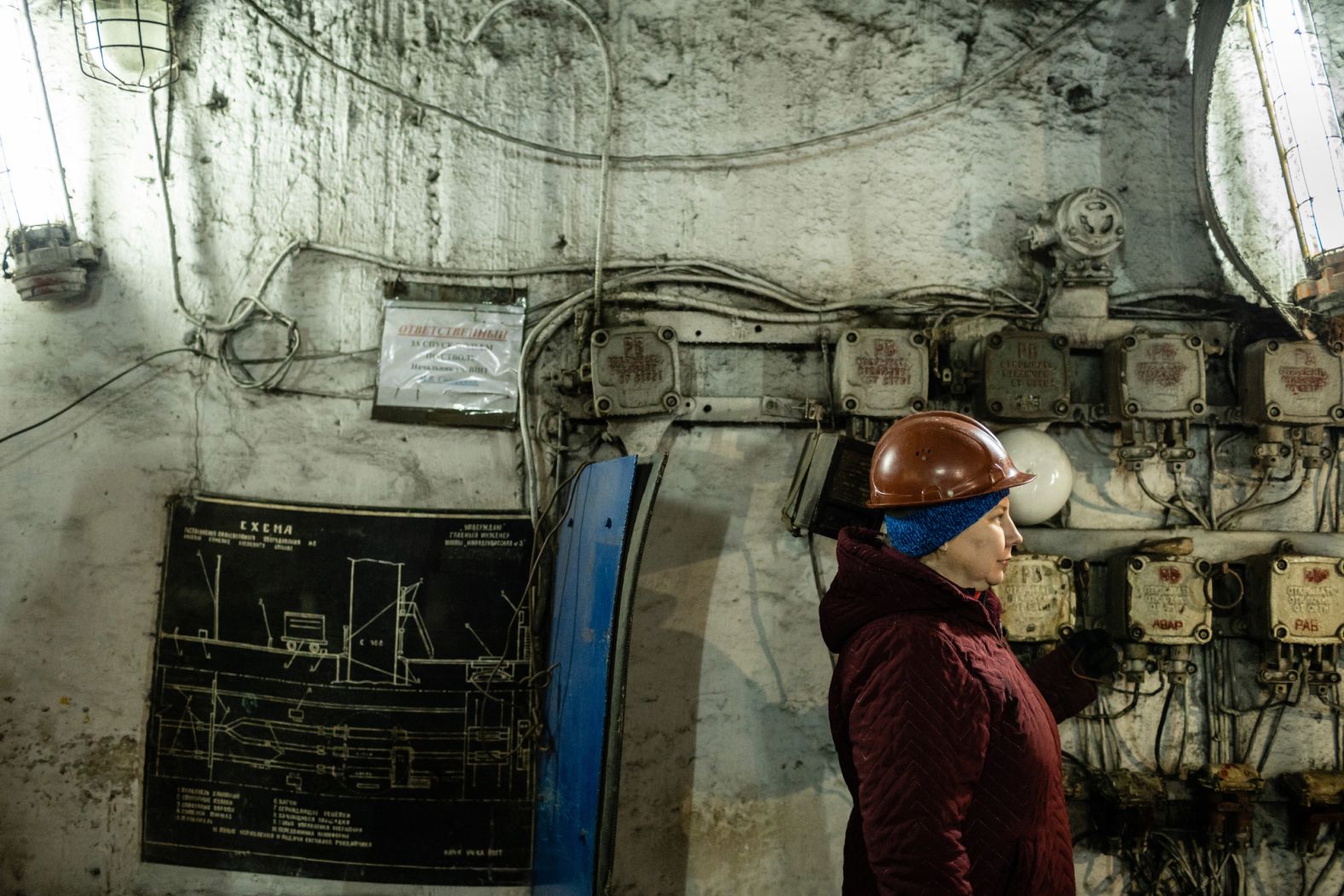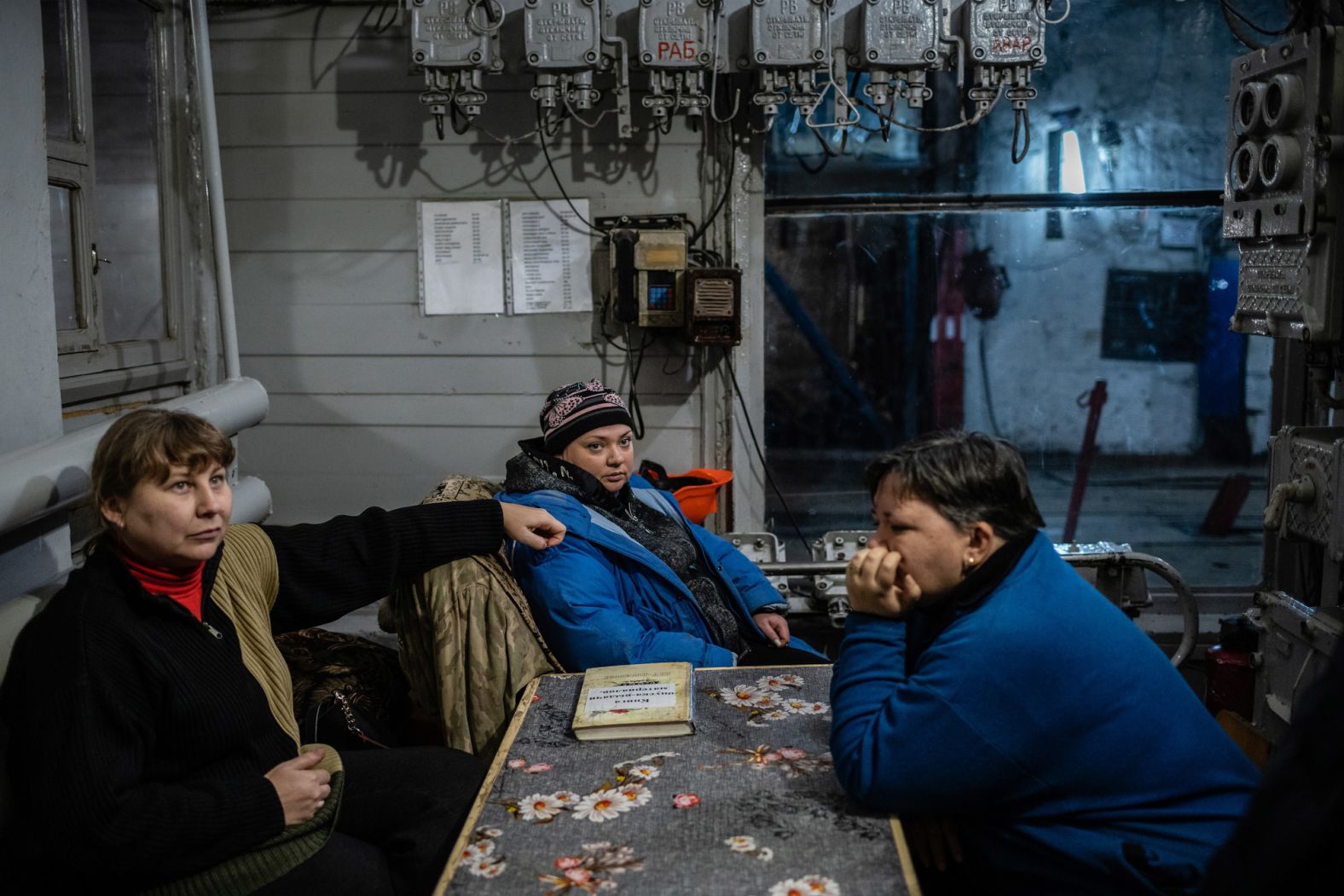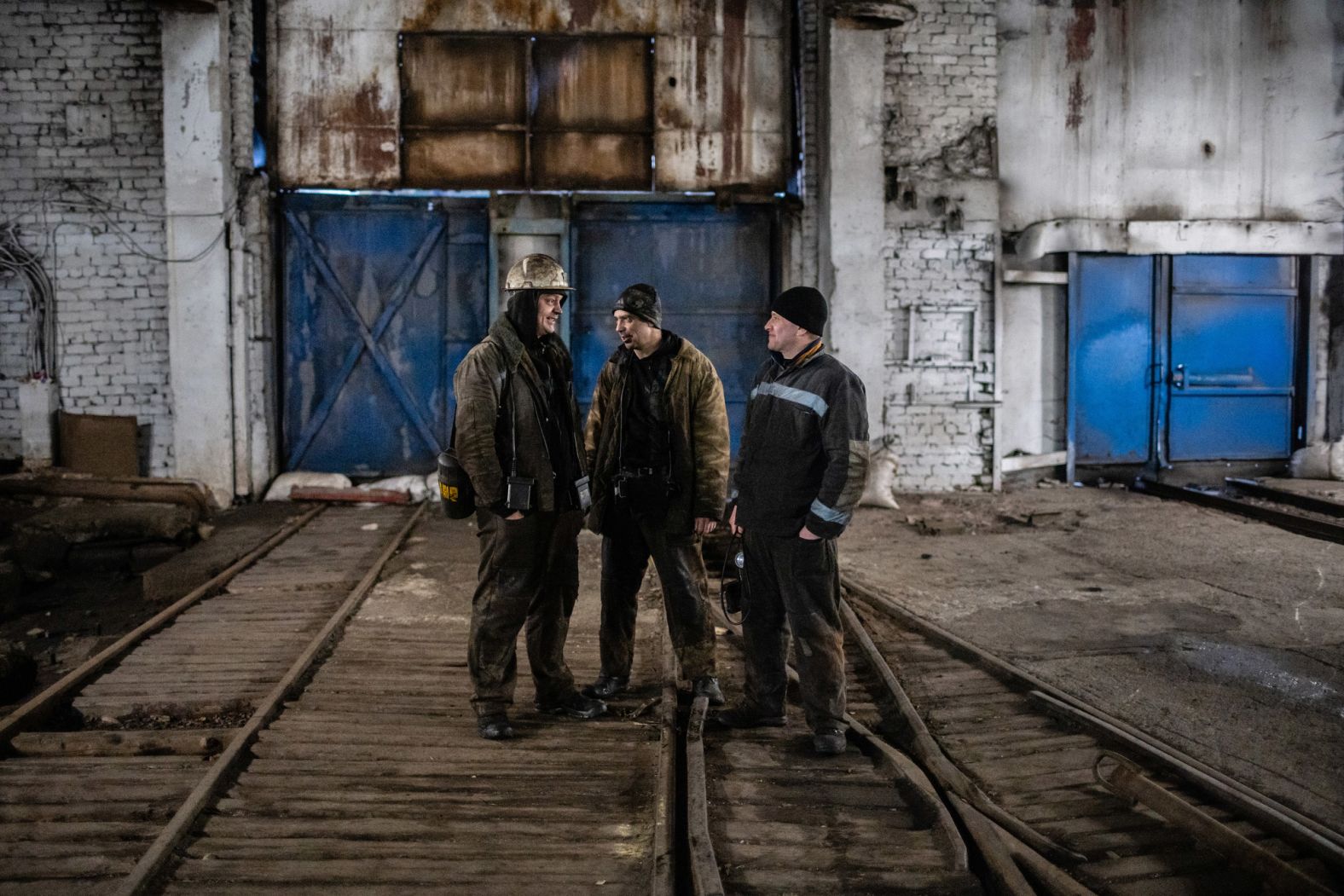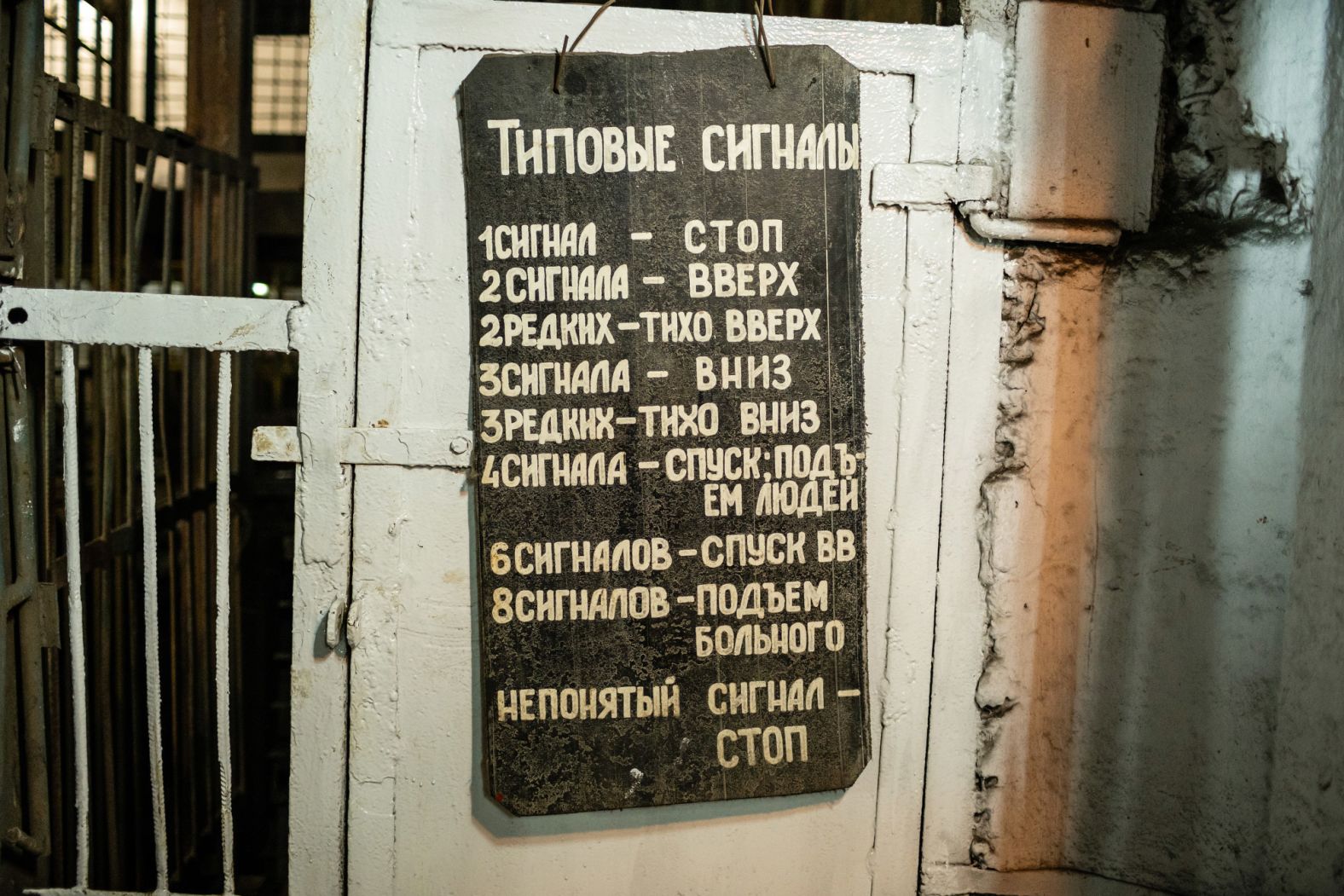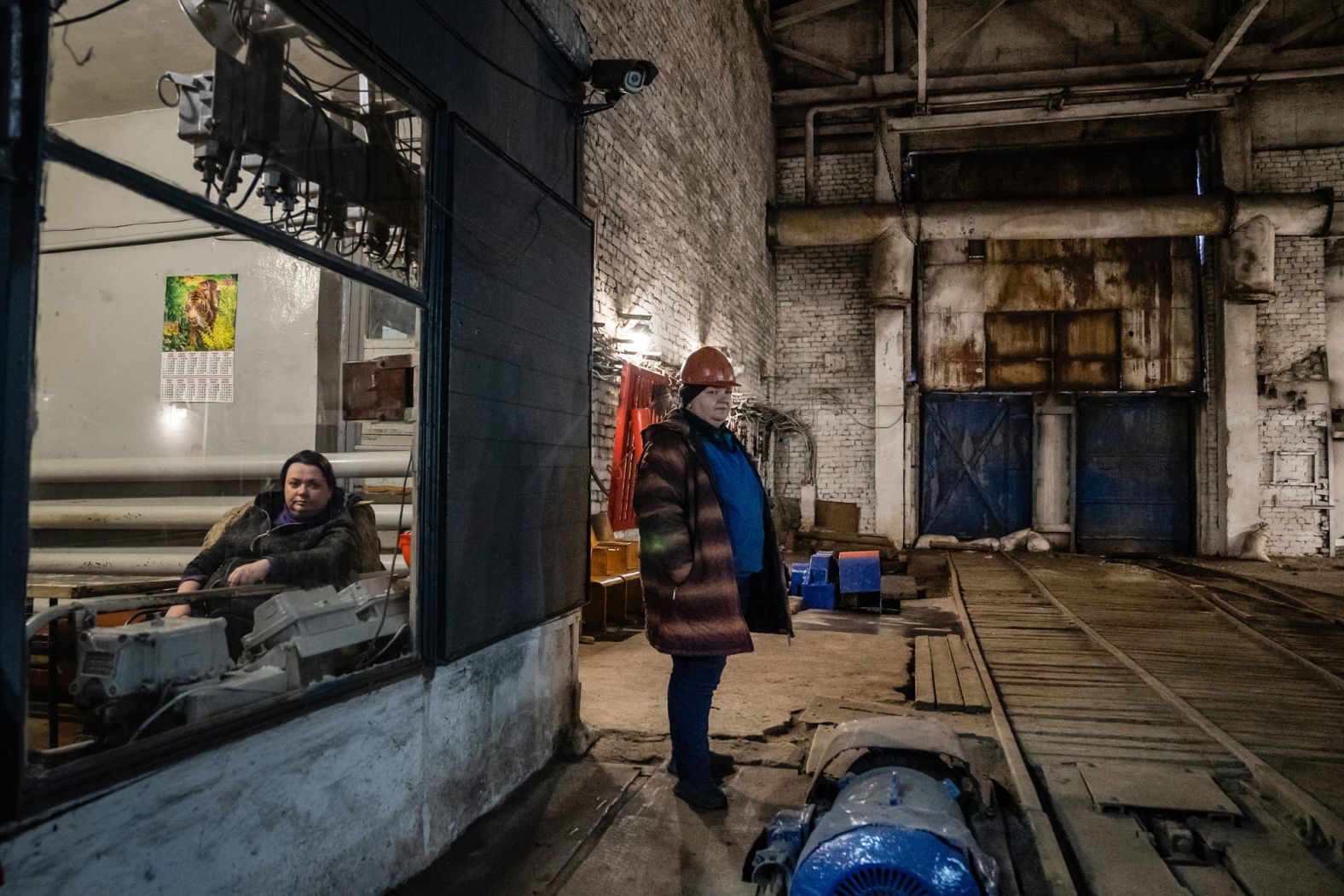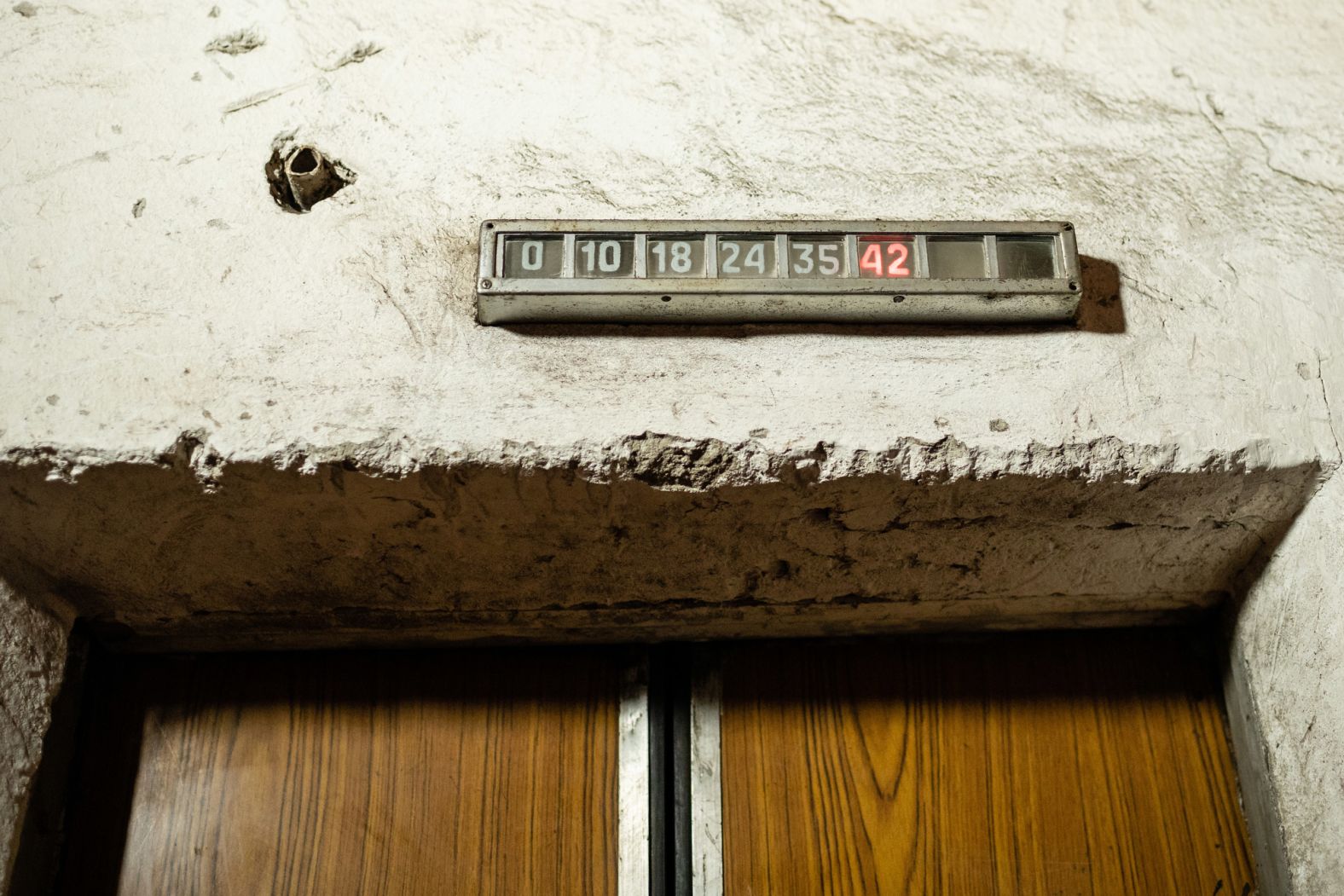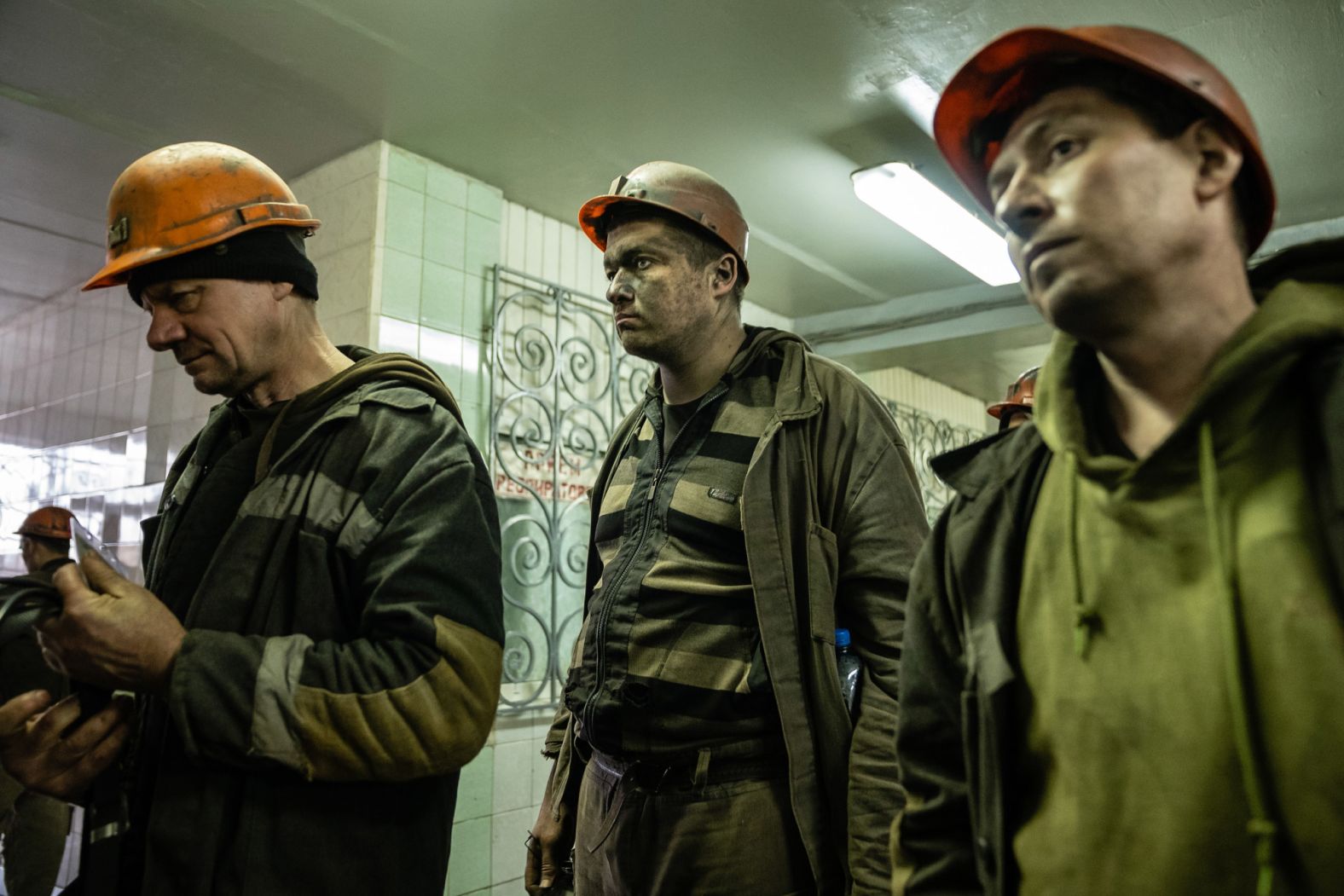Ukraine was once Europe's third-largest coal producer. But production has dropped dramatically since 2014, when fighting broke out with pro-Russian separatists in the eastern Donbas region.
In 2013, Ukraine produced 84 million metric tons of coal. Last year, it was down to 29 million.
Much of Ukraine's mines are in the Donbas and were seized by pro-Russian forces. And since the fighting began, many of these mines have been damaged or fallen into disrepair, experts say.
"Many mines were flooded due to nonfunctioning water pumps to keep the groundwater out of the tunnels," said photojournalist Timothy Fadek, who has been in Ukraine since last month covering the ongoing tensions with Russia. "The war cut the electricity, which in turn cut the pumps. The flooding is permanent and irreversibly destructive."
This destruction has had serious environmental consequences, contaminating local water supplies. It has also caused tens of thousands to miners to lose their jobs.
Those jobs are unlikely to come back. At COP26, a climate change summit held in Scotland last year, Ukraine pledged to phase out coal by 2035 and invest in clean energy.
Fadek recently visited a mine in Vuhledar, a city in eastern Ukraine's Donetsk basin. It's one of the country's biggest and most developed coal mines.
"I wanted to see the last remaining vestiges of a gutted industry struggling to remain economically relevant and see the workers who who just want to maintain food on the table and a roof over their heads," Fadek said.
